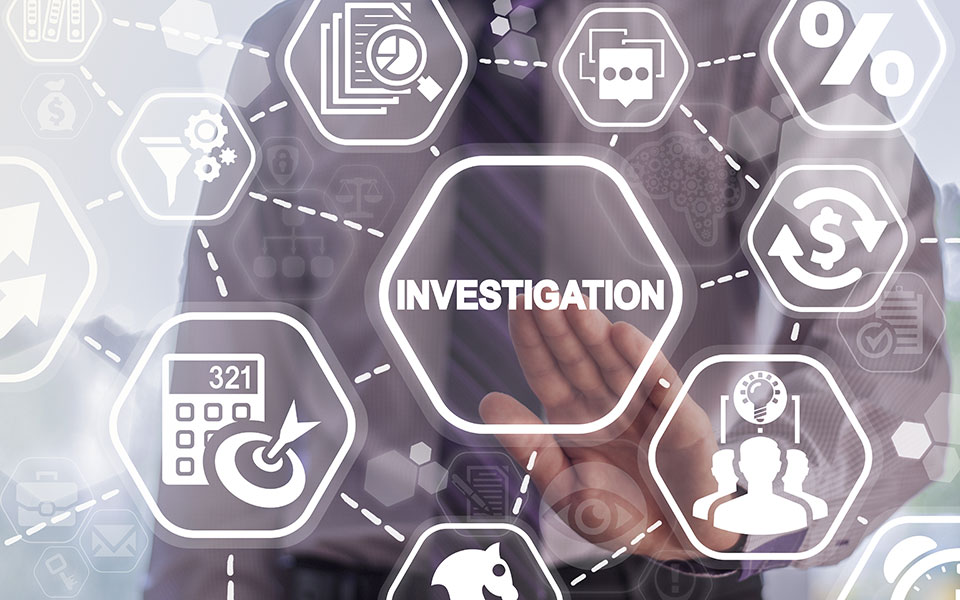The hotly contested matrimonial dissolution matters frequently require the services of an expert witness. Often, the expert’s testimony can be one of the most critical components in such a matter. Expert testimony is an invaluable way to provide jurors with factual information that could be scientific or technical in nature. Most often, when we think of expert testimony in a matrimonial dissolution matter, we think of business valuation experts and appraisers for the purpose of establishing the value of personal or real property and its inclusion or removal within the marital estate. Similarly, we think of expert testimony that includes doctors and psychologists to testify as to an individual’s state of mind or the condition of the body. But what we often don’t consider when thinking of expert witness testimony is whether we can delve deeper into that expert witness testimony: This is where investigative due diligence comes into play, enabling legal advisors to gain and maintain a competitive edge.
Investigative due diligence uses a combination of confidential interviews and the cross referencing of public and private record databases to identify information that may assist an attorney to depose or cross-examine an opposing expert. When investigating an opposing expert, there are a number of areas that should be scrutinized, including expert credentials, previous opinions and reports, prior litigation history, and accuracy of qualifications.
For example, an expert’s credentials, including degrees, certifications and publications, should be verified and compared to what is reported on the expert’s website or LinkedIn profile and, where possible, to prior available and issued reports. The expert’s current resume should also be compared to old versions to see if there are any discrepancies. Once the expert’s credentials have been verified, the report should be reviewed to make sure that it conforms to the requirements of the various certifications. Experts are bound by a variety of different standards which require the inclusion of certain information, an area of cross-examination often overlooked.
All of the expert’s opinions should be reviewed to determine if the expert has ever made statements contradicting his opinion in the current case. This review is not limited to previous expert reports, deposition/trial testimony or published materials. It should also include statements at public speaking events, blog posts, and comments on networking sites or in other media outlets, law review articles and any other non-published writings or materials attributable to the expert. Although this requires thorough research and a time commitment, this is an area where investigative due diligence can have a significant impact on the outcome of the case.
Public records searches are, similarly, often overlooked and may reveal if the expert has been involved in any civil or criminal litigation that could impact his opinion. Additionally, the expert’s disciplinary records should be reviewed to see if the expert has been sanctioned. This can include multi-disciplinary searches and multi-state searches and another exercise which investigative due diligence can be better equipped to handle.
Many cases have turned on refuting the opinions of the opposing expert. For example, a former doctor, who had signed expert affidavits in lawsuits for several years, knew his medical certification had lapsed when he signed the affidavits. It was estimated that he had reviewed, filed depositions or testified in approximately 300 cases after his certification had lapsed. Upon learning that the testifying doctor had not been certified when he testified, litigation was pursued to have the verdict overthrown.
In another case, involving insurance coverage, it was discovered that the opposing expert was named in a civil litigation involving his prior responsibilities as an executive at an insurance company. The prior complaint alleged conduct that was in direct contradiction to what his opinion was in the current matter and that after an adverse court ruling against the alleged conduct, a large settlement was paid by the executive’s prior employer.
So while conducting this research may seem cumbersome, it is well worth it to be fully informed when facing an opposing expert. And, while it may not be required in every matter, it can be the difference to a favorable resolution.
© Copyright CBIZ, Inc. All rights reserved. Use of the material contained herein without the express written consent of the firms is prohibited by law. This publication is distributed with the understanding that CBIZ is not rendering legal, accounting or other professional advice. The reader is advised to contact a tax professional prior to taking any action based upon this information. CBIZ assumes no liability whatsoever in connection with the use of this information and assumes no obligation to inform the reader of any changes in tax laws or other factors that could affect the information contained herein. Material contained in this publication is informational and promotional in nature and not intended to be specific financial, tax or consulting advice. Readers are advised to seek professional consultation regarding circumstances affecting their organization.
“CBIZ” is the brand name under which CBIZ CPAs P.C. and CBIZ, Inc. and its subsidiaries, including CBIZ Advisors, LLC, provide professional services. CBIZ CPAs P.C. and CBIZ, Inc. (and its subsidiaries) practice as an alternative practice structure in accordance with the AICPA Code of Professional Conduct and applicable law, regulations, and professional standards. CBIZ CPAs P.C. is a licensed independent CPA firm that provides attest services to its clients. CBIZ, Inc. and its subsidiary entities provide tax, advisory, and consulting services to their clients. CBIZ, Inc. and its subsidiary entities are not licensed CPA firms and, therefore, cannot provide attest services.















